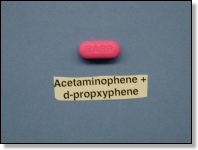Drug Facts: Pain Killers (OTC)
What is an over-the-counter pain killer?
Pain killers are, in many cases and among many populations, the most commonly used OTC medication. Typically containing acetaminophen, aspirin, or ibuprofen, their purpose, as the name implies, is to relieve pain. These medicines are to be distinguished from prescription painkillers, which often contain different substances than their OTC counterparts.
How, why, and how often are over-the-counter pain killers abused?
There are very few studies published in the health literature that document the extent of OTC pain killer abuse. The National Survey on Drug Use and Health (NSDUH), one of the more prominent national tools for measuring drug use and abuse, explicitly notes that its statistics on pain killer abuse do not include OTC pain killers, while finding that 3.2% of adolescents reported having abused prescription painkillers within the last month in 2002.
While there are few statistics related to abuse of OTC pain killers, it is estimated that 20% of children and adolescents use OTC pain killers too often (suggesting self-medicating without the intent to abuse). The concern with this behavior isn’t so much related to abuse of the substances as it is related to the potential of a missed or delayed diagnosis of a serious underlying condition (such as a migraine).
What problems can arise from over-the-counter pain killer abuse?
Tylenol™, Excedrin™, and many other popular OTC pain killers use the active ingredient acetaminophen. An overdose of this substance can severely damage the liver. Other symptoms of acetaminophen overdose include abdominal pain, appetite loss, coma, convulsions, diarrhea, irritability, jaundice, nausea, sweating, upset stomach, and vomiting. These symptoms can be delayed by up to 12 hours. There is an antidote to the poisoning, called NAC, which is most effective if administered within 8 hours of ingestion.
Mixing alcohol with acetaminophen also has the potential to cause liver damage, and mixing it with either aspirin or ibuprofen can cause stomach bleeding. This is primarily a risk in individuals who consume or more alcoholic drinks per day. Frequent use of any analgesic also has the potential to cause “rebound” or chronic headaches.
What else should I know about over-the-counter pain killers?
Remember that excessive use of OTC pain killers may not reflect the intent to abuse the substances and, rather, might be an attempt at self-medicating to reduce pain. An overdose of OTC pain killers can be very dangerous and should be treated seriously and immediately!Dengler, R. & Roberts, H. (1996). Adolescents’ use of prescribed drugs and over-the-counter preparations. Journal of Public Health Medicine, 18(4), 437-442.
Newsbites. (1998). Alcohol and common pain relievers don’t always mix. Tufts University Health and Nutrition Newsletter, 15(11).
SAMHSA Office of Applied Studies. (2002). National survey on drug use and health. Retrieved online on 7/14/08 from: http://oas.samhsa.gov/.
Mitka, M. (2004). When teens self-treat headaches, OTC drug misuse is frequent result. Journal of the American Medical Association, 292, 424-425.
